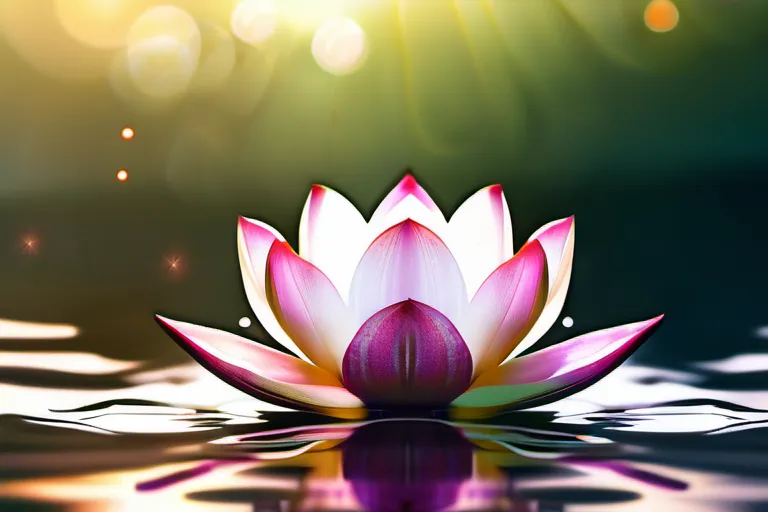Explore the fundamental principles, history, and significance of Dharma in Hinduism and Buddhism.
Dharma is a central concept in both Hinduism and Buddhism, playing a crucial role in shaping the moral, ethical, and spiritual lives of its followers. In this article, we delve into the meaning, history, and importance of Dharma, providing you with a comprehensive understanding of this profound concept.
The Origin and Evolution of Dharma
Let’s delve into the rich tapestry of Dharma, the concept that has woven its way through the heart of Hinduism and Buddhism for millennia. Where did this ancient thread originate, you might wonder? The answer lies in the mystical pages of Vedic texts like the Rigveda and the early Upanishads. These scriptures spoke of a cosmic order, rita, which defined the universe’s harmonious functioning.
As time marched on, Dharma evolved from a mere concept to a comprehensive system guiding not just behavior but also societal structure and individual conduct. In Hinduism, Dharma became synonymous with righteousness, duty, and moral obligations. It was the guidebook for living in accordance with the cosmos’s natural order, much like how a ship’s compass ensures it stays on course.
Buddhism, too, adopted this concept but with a twist. While Hindu Dharma emphasizes duties tied to one’s stage of life, Buddhist Dhamma (or Dharma) stresses the path to enlightenment through ethical conduct and wisdom. The Buddha taught that true happiness lies in following the Eightfold Path, which includes right action, speech, and livelihood—key aspects of Dharma.
The evolution of Dharma from a cosmic principle to a moral guidebook underscores its adaptability. It has been interpreted differently across various schools of thought, yet it remains a cornerstone in both traditions. How can such an ancient concept remain so relevant today? Perhaps because, at its core, Dharma is about finding balance and harmony—values that are timeless and universal.
The Principles of Dharma
When we talk about the principles of Dharma, we are essentially discussing the cornerstone values that guide individuals to live virtuous and ethical lives in both Hinduism and Buddhism. These principles, often referred to as duty or , have profound implications for one’s character and conduct.
Let’s explore these four main principles of Dharma: righteousness (Dharmas), truthfulness (Satya), compassion (Daya), and non-violence (Ahimsa).
Can you imagine a life without the guidance of these principles? How would one navigate the complex web of human interactions if there were no righteousness to uphold justice, no truthfulness to maintain honesty, and no compassion and non-violence to foster peace?
Righteousness (Dharmas) is often seen as the foundation upon which all other principles build. It encompasses a wide range of virtues such as integrity, justice, and duty. In many ways, it’s like laying down the first brick in a wall; without this solid base, the rest won’t stand.
Truthfulness (Satya), on the other hand, is the beacon that illuminates our path through murky situations. It challenges us to be honest with ourselves and others, even when it’s not easy. Imagine navigating a dark forest; without a truthful compass, one can easily lose their way.
Compassion (Daya) is the warm light that brings warmth and comfort in times of distress. It’s the act of seeing others as we see ourselves, feeling their pain as if it were our own. This principle turns a cold world into a cozy home where everyone feels valued and cared for.
Non-violence (Ahimsa) is perhaps the most profound and transformative principle. It’s like a river that flows gently, eroding away obstacles without force. Non-violence teaches us to resolve conflicts through dialogue and understanding rather than aggression or violence.
Together, these principles form a harmonious symphony of virtues that, when practiced, create not just individuals but entire societies that thrive on mutual respect, integrity, and peace. They are the bedrock upon which spiritual growth is built, ensuring that every action has a positive impact on oneself and others.
Dharma in Hinduism
Dharma, in Hinduism, is like a lighthouse guiding ships through treacherous waters, offering direction and clarity amid life’s complexities. But how did this concept come to be such a fundamental part of Hindu philosophy? Let’s explore its roots and significance.
Imagine dharma as the bedrock upon which every Hindu household is built; it ensures stability and prosperity in both worldly and spiritual realms.
In ancient times, dharma was intricately linked to the caste system. Each individual was expected to fulfill their role and duties (or karma) within their assigned social class. This framework aimed at maintaining order and harmony in society, much like a finely crafted chessboard where every piece has its designated place and move.
However, as time passed, the concept of dharma evolved beyond mere societal roles. It became more about inner righteousness—guiding one’s actions, thoughts, and words to align with moral and ethical standards. This shift can be seen in how dharma now serves as a beacon for all individuals, regardless of their social standing.
For Hindus, dharma is not just a set of rules but a way of life that encompasses everything from personal conduct to societal duties. It’s about living harmoniously with nature and fellow beings, striving for balance in every aspect of existence. In this journey, one encounters various dilemmas and challenges, much like navigating through a dense forest where paths are unclear and decisions hard to make.
How does dharma help in making these choices? By providing a framework of satya (truthfulness), ahimsa (non-violence), and bhakti (devotion). These principles not only guide one’s actions but also shape their character, ensuring that every step taken is in line with the greater good.
In essence, dharma in Hinduism is like a compass pointing towards righteousness. It helps individuals find direction and purpose in life, serving as a reminder to always act with integrity and compassion. As we journey through life’s tumultuous seas, may dharma be our steadfast guide.
Dharma in Buddhism
Dharma in Buddhism: Navigating the Path to Enlightenment
Have you ever wondered what guides Buddhists on their journey towards enlightenment? It’s not just a set of religious practices but a profound concept known as dharma. In Buddhism, dharma refers to the teachings or doctrines that lead one to the cessation of suffering. But how does it function in the context of daily life and spiritual growth?
Imagine dharma as a lighthouse guiding ships through treacherous waters. Just as a lighthouse illuminates the path ahead, dharma provides clarity and direction for Buddhists. It encompasses key principles such as right understanding, right speech, right action, right livelihood, right effort, right mindfulness, and right concentration—collectively known as the Eightfold Path.
But why is this path so crucial? The Eightfold Path isn’t just a theoretical framework; it’s a practical guide that helps individuals overcome ignorance, greed, and hatred. By following these principles, Buddhists can cultivate wisdom, ethics, and mental discipline, paving the way to enlightenment.
The significance of dharma in Buddhism goes beyond personal transformation. It plays a vital role in fostering harmony within communities. Just as bees work together to create a thriving hive, dharma encourages individuals to live harmoniously with each other and nature, ultimately contributing to a peaceful and just society.
In essence, dharma serves as both a map for spiritual exploration and a compass for ethical living. By embracing its principles, Buddhists not only seek personal enlightenment but also contribute to the greater good of all beings. The journey may be challenging, but with the guidance of dharma, every step taken is towards a brighter and more enlightened future.
The Importance of Dharma in Modern Times
How does Dharma, this ancient concept from Hinduism and Buddhism, apply to our modern lives? In a world where technology races ahead, values shift, and societies grapple with complexity, Dharma offers us a timeless guide. It’s like navigating through a dense forest; without proper guidance, we might easily lose our way. So, how does Dharma help us find our path?
At its core, Dharma means duty or righteous living. In Hinduism and Buddhism, it is seen as an individual’s responsibility to live in harmony with the universal order. It’s like a personal compass that points towards moral and ethical behavior. But what makes Dharma so significant in modern times?
Consider Dharma as the invisible thread that binds us all together. In today’s society, it can be challenging to discern right from wrong amidst conflicting opinions and rapidly changing norms. Dharma provides a framework for making decisions that align with our inner values and contribute positively to both personal growth and societal well-being.
Moreover, in an era where the pursuit of individual happiness sometimes overshadows communal harmony, Dharma acts as a reminder of our interconnectedness. It encourages us to think beyond self-interest and consider the impact of our actions on others. Just like planting a seed can grow into a tree that shelters not just one, but many creatures, living by Dharma can lead to a more harmonious world.
So, as we navigate through life’s challenges, let Dharma be our guide. It can help us build stronger communities and foster a sense of shared responsibility. By embracing the principles of Dharma, we might just find that the path forward is clearer than we imagined.
Practicing Dharma: A Personal Journey
How often do we find ourselves wandering through life, seeking purpose and direction? Dharma, the ancient Indian concept that encompasses duty, righteousness, and moral law, offers a path to navigate these uncharted territories. In Hinduism and Buddhism, Dharma is not just about adhering to rules but embracing a way of living that aligns with one’s true nature.
Imagine life as a vast ocean; navigating through it without a compass can be both thrilling and perilous. Similarly, life without the guidance of Dharma can lead us into murky waters where we might lose our way. By practicing Dharma in our daily lives, we ensure that every step we take is aligned with righteousness.
-
Firstly, embrace your role in society. Just as a tree provides shade and fruit for all creatures, understanding one’s place in the social structure can provide a sense of purpose. Are you a parent, a teacher, or a friend? Each role carries its own responsibilities.
-
Secondly, cultivate ethical conduct. Think about it: what actions do you take that reflect your values? From honesty and truthfulness to non-violence and compassion, these are the building blocks of Dharma in practice. By embodying these virtues, we not only improve our own lives but also contribute positively to those around us.
-
Lastly, seek inner balance. Meditation and mindfulness can be powerful tools in aligning your actions with your Dharma. They help you stay centered amidst life’s chaos and allow you to make choices that are truly right for you. Just as a river finds its path through the landscape, so too do we find our way by staying true to our inner guidance.
Incorporating these principles into your daily routine is like planting seeds in fertile soil; they grow and nourish the soul over time. As you embark on this journey of practicing Dharma, remember that it’s not about perfection but progress. Each day is a new opportunity to align with higher virtues and live a more meaningful life.
So, let us embrace Dharma as a guide in our personal journeys toward spiritual growth and enlightenment. After all, just like the stars guide the wayward ship through the night, Dharma can lead us to the light of true understanding and peace.
Conclusion
 By the end of this article, you will have gained valuable insights into the concept of Dharma, its role in Hinduism and Buddhism, and how it can guide your own spiritual journey. Embrace the wisdom of Dharma and live a life of purpose and harmony.
By the end of this article, you will have gained valuable insights into the concept of Dharma, its role in Hinduism and Buddhism, and how it can guide your own spiritual journey. Embrace the wisdom of Dharma and live a life of purpose and harmony.











